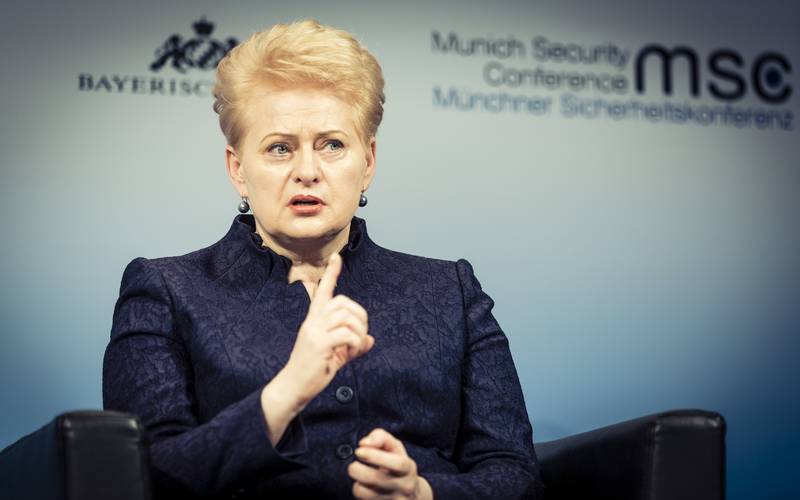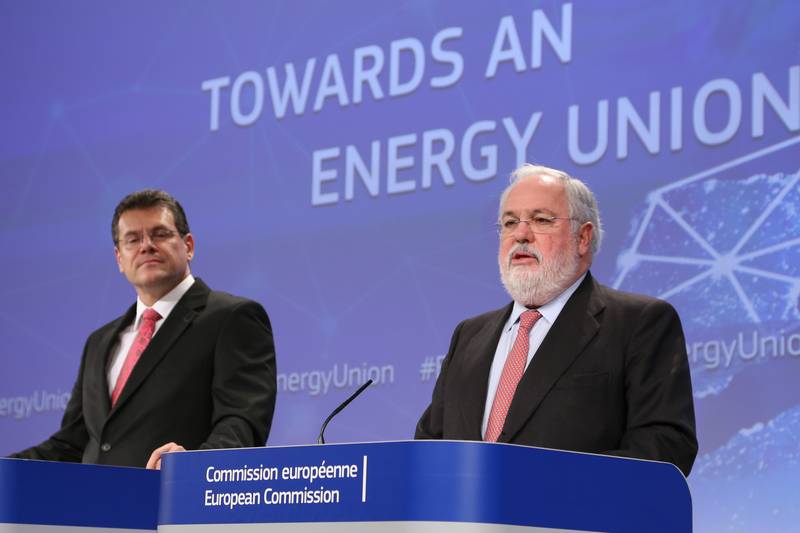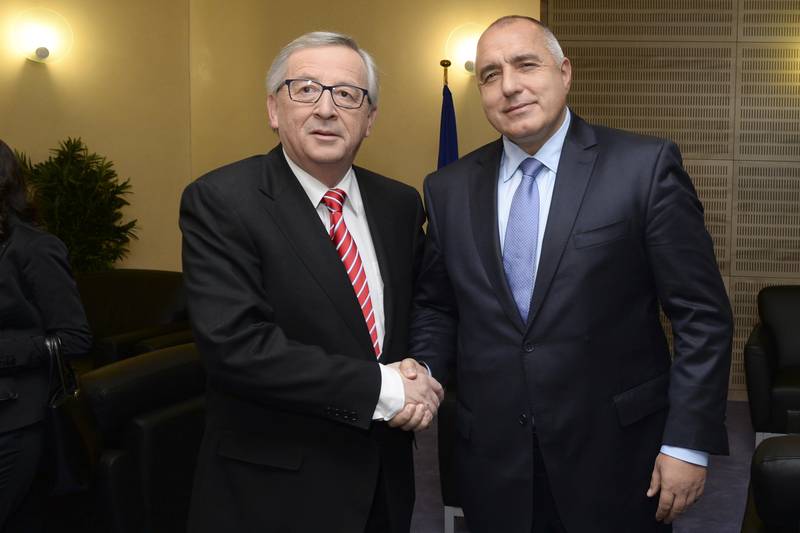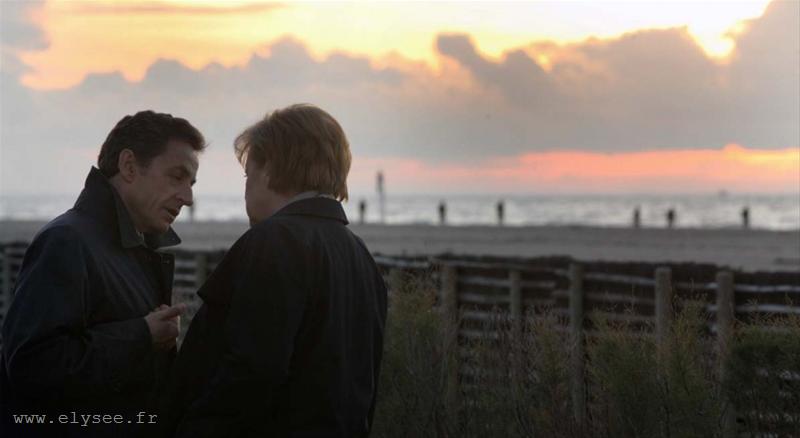The internal market for energy to be completed by 2014, the EU leaders called
Adelina Marini, February 9, 2011
 As of January 1st 2012 EU member states will have to inform the Commission about all their new and existing bilateral energy agreements with third countries (outside the EU). This is written in the conclusions of the Energy European Council, which was held on February 4th but was overshadowed by the practical split of the Union to a euro area and the rest. After providing this information, the Commission will send it to the other member states in "an appropriate form", meaning taking into account the protection of commercially sensitive information.
As of January 1st 2012 EU member states will have to inform the Commission about all their new and existing bilateral energy agreements with third countries (outside the EU). This is written in the conclusions of the Energy European Council, which was held on February 4th but was overshadowed by the practical split of the Union to a euro area and the rest. After providing this information, the Commission will send it to the other member states in "an appropriate form", meaning taking into account the protection of commercially sensitive information.
A single energy market?
The purpose of gathering of such information is to assist the completion of the internal market for energy, for which EU leaders recommend to be fully completed by 2014. And what will it look like, actually? As far as the conclusions say, the cooperation of national regulators and system operators must be ensured so that they could speed their work on market coupling and guidelines and on network codes applicable across European networks. And as major efforts will be needed to modernise and expand energy infrastructure in Europe, as well as for connecting networks among member states, it will be important their solidarity to be ensured.
Still in the future tense and a subject of consultations remains the building of interconnections, and the Commission is expected to come up with a specific proposal on the construction of new infrastructure. Separately, EU's executive is tasked to coordinate the integration of the markets and networks on a regional level, which has already started as a process in some parts of Europe. "No EU Member State should remain isolated from the European gas and electricity networks after 2015 or see its energy security jeopardized by lack of the appropriate connections", the conclusions say.
Besides member states, together with the European standardisation bodies and industries will have to accelerate their work with a view to adopting technical standards for electric vehicle charging systems by mid-2011.
Wonderful, who is to pay the bill?
A partial answer to this question is offered in the Council Conclusions: "The bulk of the important financing costs for infrastructure investments will have to be delivered by the market, with costs recovered through tariffs. [...] However, some projects that would be justified from a security of supply/solidarity perspective, but are unable to attract enough market-based finance, may require some limited public finance to leverage private funding. Such projects should be selected on the basis of clear and transparent criteria. The Commission is invited to report by June 2011 to the Council on figures on the investments likely to be needed, on suggestions on how to respond to financing requirements and on how to address possible obstacles to infrastructure investment". This sentence reflects the latest position PM Boyko Borissov has decided to defend, namely that strategically important infrastructure projects, which cannot be financed on a market basis, should be funded by EU funds.
This position is related predominantly to the Nabucco project and has been agreed by the countries participating in the project. Initially the prime minister asked (not elsewhere but in Washington) the costs for the construction of Nabucco to be deducted when calculating the budget deficit. According to the press release from the Government Information Service, Mr Borissov raised the following question with his colleagues: "I asked us being told, at our next meeting, the reasons behind the increase of the costs for Nabucco by several billion euro - whether it is a result of technical errors or a change of the route, or because of guarantees for the new sources of gas. This is important for us because, as shareholders, we are interested in knowing what loans we have to ask from the EIB - be it 1.2bn, 2bn or 3bn euro".
By June 2011 the Commission has to report to the Council on the specific investments that are to be made, to make proposals how to respond to financial requirements and in what way possible obstacles for infrastructure investments to be removed.
Better coordination in energy policy, please!
In a wishful mood was also the conclusion about the need for better coordination of the EU with the activities of member states in terms of guaranteeing consistency and coherence in EU's external relations with key producer, transit, and consumer countries. Also by June this year the Commission has to propose a communication on security of deliveries and international cooperation. EU's High Representative for Foreign Affairs is invited to take fully account of the energy security dimension in her work. "Energy security should also be fully reflected in the EU's neighbourhood policy", is written in the conclusions without being specified what this exactly means, especially against the backdrop of the failure of the policy aimed at Belarus and Northern Africa, as well.
In this sense Russia is explicitly mentioned in the conclusions: "Work should be taken forward as early as possible to develop a reliable, transparent and rules-based
partnership with Russia in areas of common interest in the field of energy and as part of the negotiations on the post-Partnership and Cooperation Agreement".
In the meantime, the Bulgarian National Radio reported that Turkey had decided to support financially the construction of the strategic, in terms of Europe's energy security, project Nabucco. This will happen through recovering of VAT to companies that will take part in the construction of the gas pipeline. The name of the country, however, is not explicitly mentioned in the Council's conclusions which forced Turkish media to raise the question at the press conference on Friday evening. Responding to it the president of the European Commission, Jose Manuel Barroso, said that Turkey was in fact mentioned during the discussions in the Council.
"Turkey is a very important partner for us in terms of the perspective of the South Corridor and there is a specific reference to the South Corridor. But several other partners are mentioned and I can confirm to you that issues relating to Turkey were in fact mentioned during our meeting. But not all the countries that we have mentioned are here in the conclusions", Barroso added. The only reference of the South Corridor in the conclusions is in the very end of the document in the following sentence: "The Commission is accordingly invited to continue its efforts to facilitate the development of strategic corridors for the transport of large volumes of gas such as the Southern Corridor".
 Dalia Grybauskaite | © MSC/Koerner
Dalia Grybauskaite | © MSC/Koerner Maros Sefcovic, Miguel Arias Canete | © European Commission
Maros Sefcovic, Miguel Arias Canete | © European Commission Jean-Claude Juncker, Boyko Borissov | © European Commission
Jean-Claude Juncker, Boyko Borissov | © European Commission | © euinside
| © euinside | © The Council of the European Union
| © The Council of the European Union | © www.elysee.fr
| © www.elysee.fr